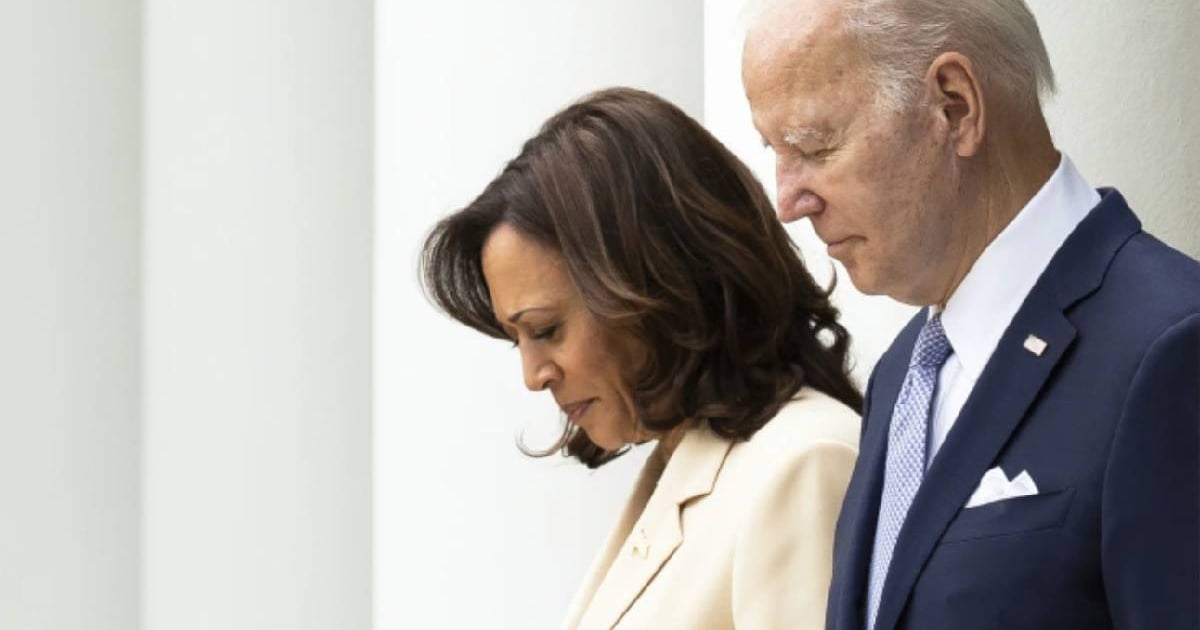
Kamala Harris's defeat in the 2024 presidential elections, although not directly attributable to Joe Biden, marks a painful milestone and a sort of final chapter in a saga that began with the promise of restoring the "soul" of the United States under his leadership in 2020.
Now, when the failure at the polls is an undeniable fact, it is difficult to escape the perception that his choice to remain in office until mid-2024 has significantly contributed to his party's defeat, political analysts point out.
History may remember this setback not only as a personal failure for Harris but also as a result of the accumulated strain under Biden's presidency, they explained.
It is undeniable that Joe Biden, the person with the most years in American politics today, has succeeded in bringing the country out of the pandemic, approving a historic one trillion dollar infrastructure plan, and solidifying international support for the United States in the war in Ukraine against the Russian invasion.
These are significant achievements that could remain in historical memory for the long term, along with other approved programs that will have a major impact on millions of families over the next 10 years.
However, these successes were not enough to alleviate the immediate concerns of voters. Inflation, the cost of living, and growing dissatisfaction with border management eroded public support.
Biden's candidacy, in this respect, was marked by a paradox: although he promised to restore "decency" to the White House, many voters did not see him as a figure capable of adapting to the challenges of the moment.
At 81 years old, his perception of age and waning energy weighed more heavily than expected. Although some of the successes of his administration were undeniable, the decision to remain in the electoral race until July 2024 left the Democratic Party with little time for effective renewal.
His late withdrawal left no room for genuine internal competition, limiting the party's ability to find a leader with the necessary dynamism to confront Donald Trump.
Kamala Harris: the unfulfilled promise
Kamala Harris, as her successor in the Democratic candidacy, embraced the challenge with the hope of providing a fresh and new alternative. Her campaign, focused on issues such as reproductive rights and economic recovery, gained support, especially from young women.
However, her inability to distance herself from Biden's legacy proved fatal. The lack of a clear distinction between her proposal and that of her predecessor left her trapped in a dead end.
Her famous response on The View about being unable to identify a policy where she differed from Biden became a symbol of the lack of clear direction in her campaign.
This lack of distinction not only weakened her in front of undecided voters but also allowed Republicans to capitalize on the narrative of a Democratic Party lacking a clear direction, perpetuating the perception that Harris merely represented a continuation of a presidency that had failed to address the deeper concerns of Americans.
Furthermore, her inability to connect with key voters such as Latinos, African Americans, and young people showed that Biden's electoral base had not significantly expanded during his term, a mistake that Harris was unable to rectify.
The Return of Trump: A Bitter Lesson
While Harris's defeat could be attributed to several factors, the greatest irony is that, after Biden's victory over Trump in 2020, the Democrats found themselves in 2024 in a situation where, ultimately, the party relinquished control of the White House to the same man they had defeated four years earlier.
For many analysts, Biden's legacy may be remembered not only for his achievements but also for having paved the way for a return of Trump, who, despite his multiple scandals and legal challenges, seems to have maintained a connection with a crucial electoral base that the Democrats failed to mobilize.
The outcome of the 2024 elections is, to a large extent, a strategic failure for both Biden and Harris. Biden, by his late decision to withdraw from the race, left the Democratic Party with insufficient time to rejuvenate, while Harris, initially a symbol of change, failed to present a clear alternative or distinguish herself from the outgoing president.
Ultimately, this defeat highlights a crucial lesson for Democrats: the urgent need to renew leadership early and effectively. They will now have to confront Trump's mandate without a strong, visible leader.
What do you think?
COMMENTFiled under: